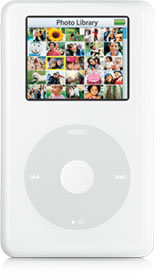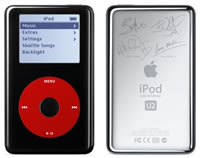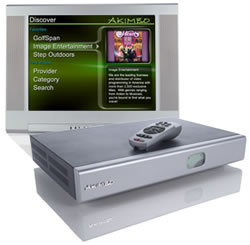18:45 for a 19:00 start
Since Greg Dyke first announced the BBC’s intention, in 2001, to give access to some of the BBC’s huge archive there has been fevered speculation about the implementation and boundaries of this exciting, world-leading idea.
Using a computer, the British public will be able to download programming and programming excerpts at no cost. The hope is that this material will then be used to fuel their own creative endeavours, which will in turn be shared – creating new content from old. It is a bold project, with many obstacles to conquer.
Cut through the hype – come and hear the facts from Paula LeDieu, joint director of the BBC Creative Archive project. Paula’s presentation will be followed by Q&A.
Speaker: Paula LeDieu, joint-director, BBC Creative Archive
Host: Simon Perry, publisher, Digital Lifestyles Free tickets are limited. Please apply to [email protected]
This event is organised by the RTS London Centre events committee. Venue – LWT South Bank, Upper Ground, SE1, London. [Map]
Nearest stations are Waterloo and Southwark.
 Apple’s much anticipated and predicted new iPod – iPod Photo, launched late yesterday, has moved into the multimedia realm, allowing users to view and share photos as well as the normal music play back. The new iPod Photo can hold up to 25,000 pictures and can be connected to a television to play video slide shows. The 40-gigabyte version is priced at $499 (~£272) and the 60-gigabyte model is priced at $599 (~£326).
Apple’s much anticipated and predicted new iPod – iPod Photo, launched late yesterday, has moved into the multimedia realm, allowing users to view and share photos as well as the normal music play back. The new iPod Photo can hold up to 25,000 pictures and can be connected to a television to play video slide shows. The 40-gigabyte version is priced at $499 (~£272) and the 60-gigabyte model is priced at $599 (~£326).  The U2 iPod is expected to be available mid-November for a suggested retail price of £249 (~$456) through the Apple Store, Apple’s retail stores and Apple Authorised Resellers. IPod TV adverts showing U2 were shown on UK television this evening.
The U2 iPod is expected to be available mid-November for a suggested retail price of £249 (~$456) through the Apple Store, Apple’s retail stores and Apple Authorised Resellers. IPod TV adverts showing U2 were shown on UK television this evening. We’ve been keeping our eye on Akimbo, an IP-delivered VOD (Video-On-Demand) service and have learnt that they are launching and have signed on Amazon.com as its official retailer. Akimbo has just launched its video-on-demand service and signed on Amazon.com as its official retailer. Akimbo is to video what Apple’s iTunes is to the iPod. The Akimbo Player, utilising an easy “Queue and View” format is a set-top box that delivers hundreds of mainly niche program videos to television through a broadband-Internet connection allowing consumers to choose content and view it on-demand – or maybe even later.
We’ve been keeping our eye on Akimbo, an IP-delivered VOD (Video-On-Demand) service and have learnt that they are launching and have signed on Amazon.com as its official retailer. Akimbo has just launched its video-on-demand service and signed on Amazon.com as its official retailer. Akimbo is to video what Apple’s iTunes is to the iPod. The Akimbo Player, utilising an easy “Queue and View” format is a set-top box that delivers hundreds of mainly niche program videos to television through a broadband-Internet connection allowing consumers to choose content and view it on-demand – or maybe even later.